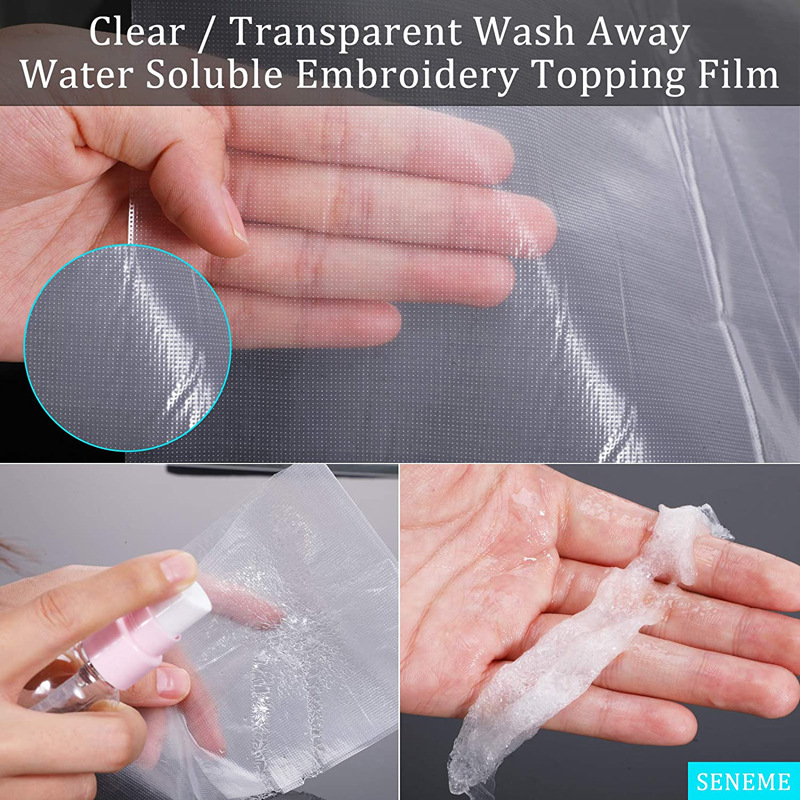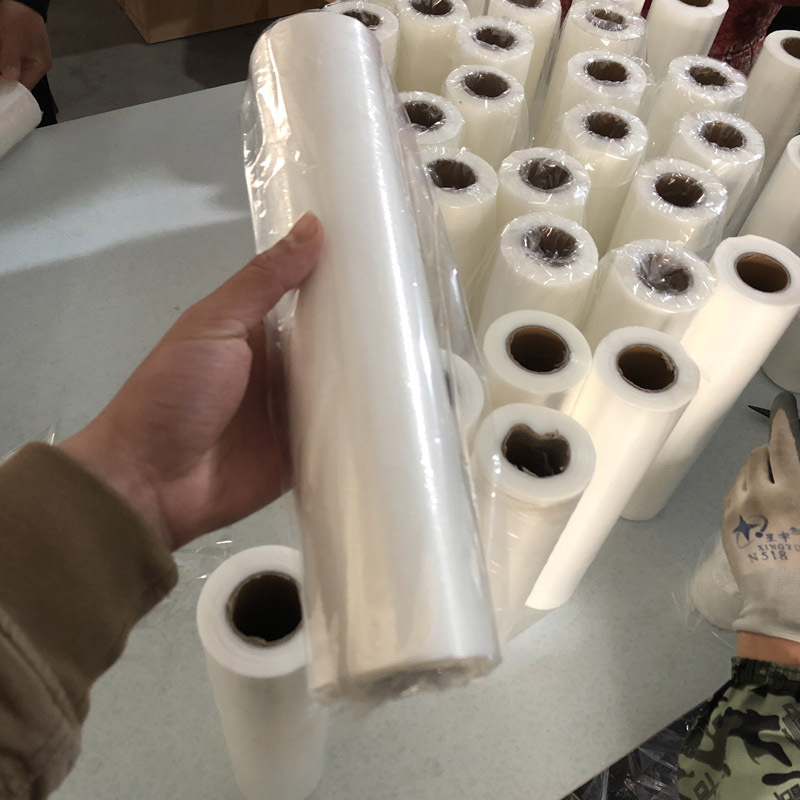PVA (Polyvinyl Alcohol) Water-Soluble Film is a unique material that dissolves completely in water, leaving no residue behind. This film is made from polyvinyl alcohol, a synthetic polymer that is both biodegradable and environmentally friendly. It is commonly used in various industries for applications where temporary stability is required, and the material must later dissolve without leaving a trace.
Material:
- Polyvinyl Alcohol (PVA): The primary component of the film, known for its water solubility, biodegradability, and non-toxic nature. PVA is also resistant to oil, grease, and solvents, making it versatile for different uses.
Characteristics:
- Water Solubility: The most defining feature of PVA film is its ability to dissolve in water, with the dissolution rate varying based on water temperature. Warmer water generally speeds up the process.
- Biodegradability: PVA is environmentally friendly as it degrades naturally after dissolving, leaving no harmful residues.
- Transparency and Strength: The film is typically transparent and has good mechanical strength, making it suitable for a range of applications.
- Chemical Resistance: PVA film is resistant to oils, grease, and organic solvents, adding to its versatility.
- Non-Toxicity: It is non-toxic and safe for use in applications that require close contact with food or sensitive materials.
Applications:
- Packaging: Widely used for packaging products that are meant to be dissolved in water, such as detergents, cleaning agents, and agrochemicals. The film dissolves in the washing machine or when mixed with water, eliminating the need for additional packaging disposal.
- Medical and Healthcare: Utilized for dissolvable pouches that contain medical substances or laundry bags for contaminated linens, where the film dissolves in water during washing, reducing handling and contamination risks.
- Textile and Embroidery: Employed as a stabilizer in embroidery. After stitching, the fabric is rinsed in water, and the PVA film dissolves, leaving the embroidery clean without any residue.
- Agriculture: Used for seed tapes or water-soluble bags that dissolve when exposed to moisture in the soil, allowing for controlled release of seeds or fertilizers.
- Printing and Transfer: PVA films are used as a base for water-transfer printing, where patterns or images can be transferred onto surfaces by dissolving the film in water.
How to Use:
- Packaging: Place the desired product (e.g., detergent) inside the PVA film pouch. The pouch can be sealed using heat or ultrasonic methods. When the product is used, the pouch dissolves in water, releasing the contents.
- Embroidery: Place the PVA film over or under the fabric to stabilize it during embroidery. After stitching, immerse the fabric in water to dissolve the film, leaving the embroidery intact.
- Medical Uses: Place contaminated linens or materials inside a PVA laundry bag. The bag is placed directly in the washing machine, where it dissolves in water, allowing the contents to be cleaned without direct handling.
In summary, PVA water-soluble film is a highly versatile material that offers innovative solutions across various industries, from packaging and healthcare to textiles and agriculture. Its unique ability to dissolve in water and biodegrade makes it an environmentally responsible choice for applications that require temporary support or containment.



 CN
CN Contact Us
Contact Us



